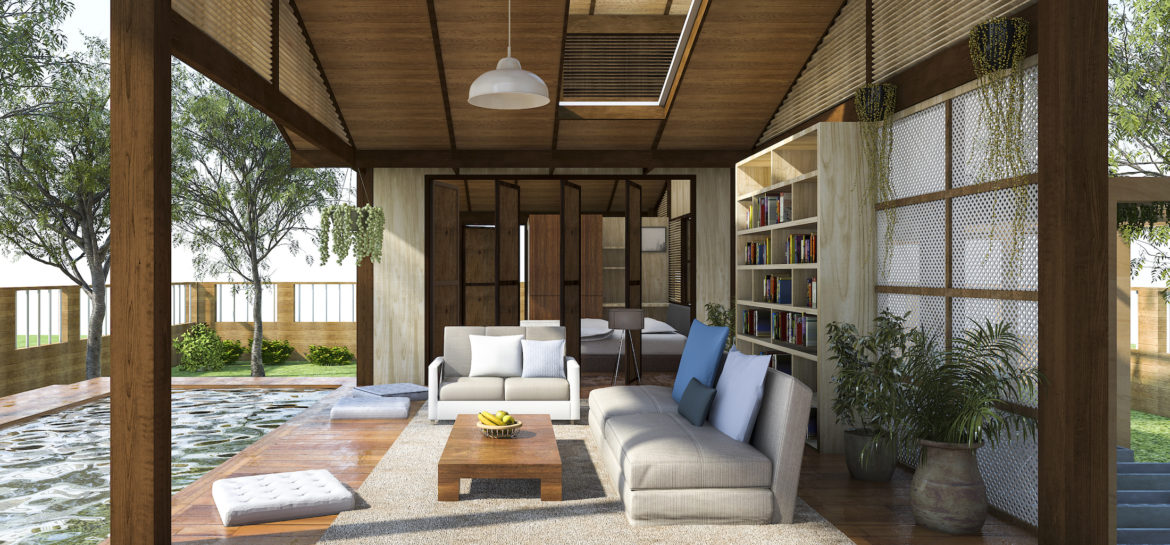
Residential Well-Being: Rethinking Real Estate with Feng Shui
As one of the earliest forms of design, Feng Shui affirms that the energies of your environment interact with and influence your personal energy flow. Your personal energy flow then affects your thoughts, behaviors, actions and achievement—your well-being. This could not be more evident than in the home and with the quickly growing wellness real estate industry. People around the world are increasingly seeing the value in creating more balance in their homes—just like they are doing for fitness, health and nutrition. So, in relation to homes and real estate, Feng Shui empowers you to influence the interacting energies to improve your surroundings and your vitality.
The $134 billion in spending across the wellness real estate industry is projected to rise 30% by 2022.1
Rising consumer interest shows buyers and sellers are paying closer attention to core features such as light, sound, air quality, flow and access to nature. Each feature provides a unique impact on our health and wellness. For example, comfort not only impacts our ability to feel a sense of relaxation and peace of mind but also our ability to concentrate and be productive.2 Feeling the presence of the living world around us raises our spirits.
“I don’t think that architecture is only about shelter, is only about a very simple enclosure. It should be able to excite you, to calm you, to make you think”
– Zaha Hadid
Elements of Feng Shui in Residential Well-Being
There are a couple of major aspects to consider when bringing a space into balance. The traditional or classical side of Feng Shui is a scientific method where an environment is evaluated based on the orientation of the structure, its age, and its interaction with the surrounding environment. The intentional aspect, which not only takes into account artwork and shapes, but also includes Feng Shui principles that can help identify the best use and flow of space. These tenets can be incorporated to find the most conducive internal environment to create a positive, productive atmosphere. Finally, there are the true atmospherics, which include sensory elements such as sound and scent. These can also be adjusted to create an environment geared to your personal individual wellness.
The blueprint for well-being begins at home.
A home can attract beneficial energy or repel it. By nurturing each part of these physical spaces you improve the quality of energy and create harmony. Take advantage of Feng Shui for residential well-being in your home and realign your space to reflect your true intentions. By adjusting the placement of items and introducing corrective elements, you can balance and enhance the energy flow through your space—improving health, mood, energy and well-being.
[1]Global Wellness Institute 2018
[2]Lomonaco and Miller 1996

